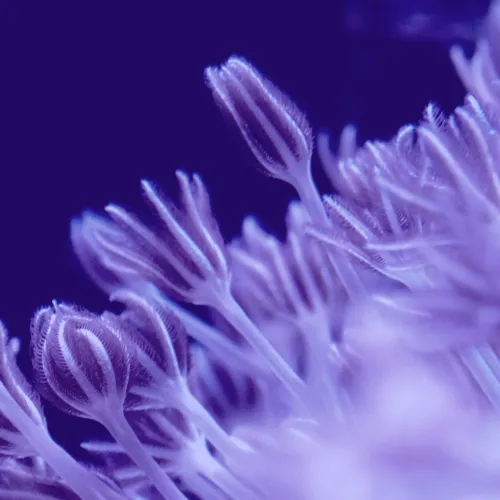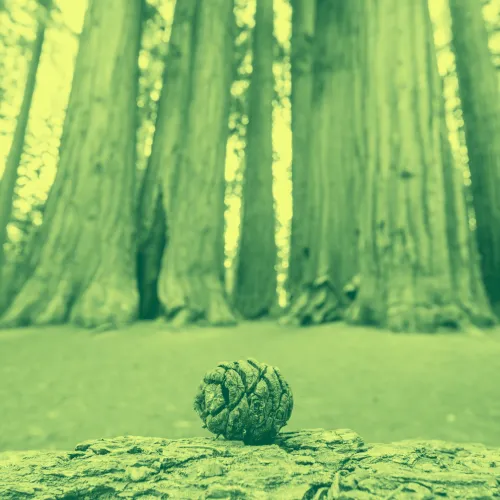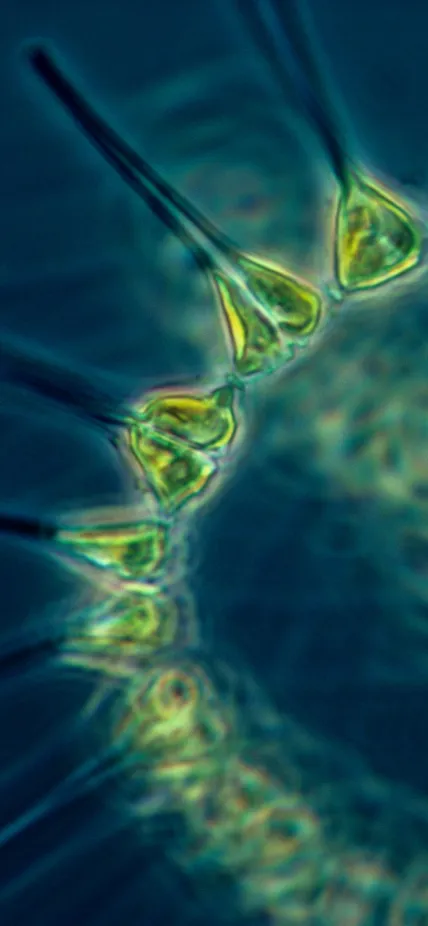Staff Excellence
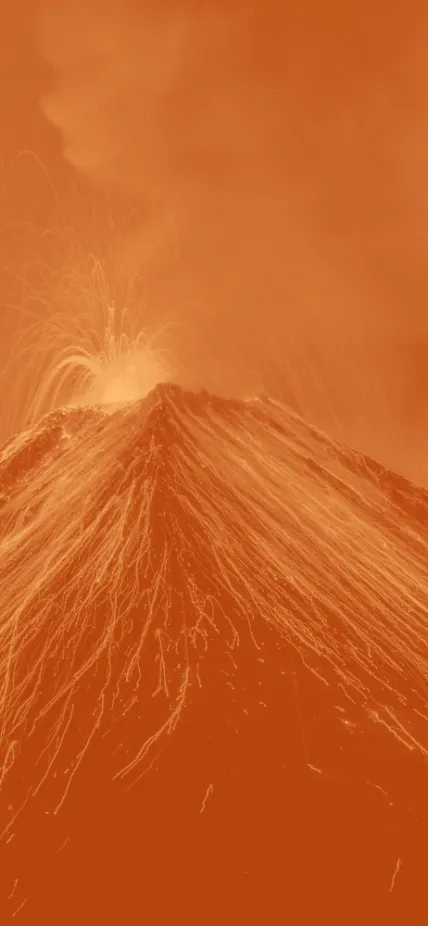
Carnegie scientists are pioneers, shaping new frontiers of exploration with bold curiosity and innovative research. Discover their recent achievements and meet the newest member of our team.
Honors & Awards
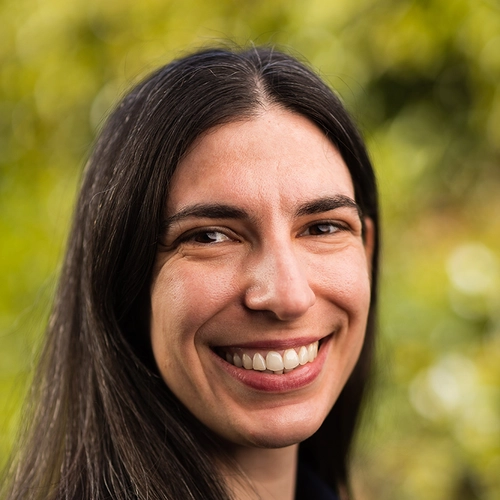
Carnegie’s Ana Bonaca wins AAS Warner Prize
Carnegie’s Ana Bonaca was awarded the American Astronomical Society’s Helen B. Warner Prize in recognition of her work, which uses our own Milky Way as a cosmological laboratory to explore the evolution of the universe. Each year, the organization selects an astronomer within eight years of completing a Ph.D. who is significantly advancing theoretical or observational astronomy research.
Bonaca specializes in stellar dynamics and aims to uncover the structure and evolution of our Milky Way galaxy and the dark matter halo that surrounds it.
Learn more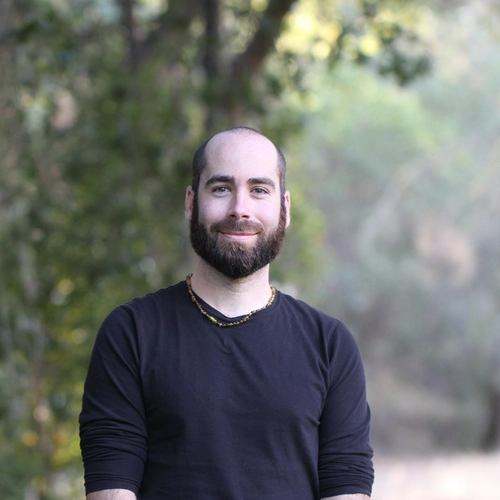
Moises Exposito-Alonso receives Tansley Medal, is selected for inaugural class of HHMI Freeman Hrabowski Scholars, and is recognized by ASPB for early career excellence
Recently departed Carnegie evolutionary geneticist Moises Exposito-Alonso has won the 2022 New Phytologist Tansley Medal for outstanding contributions to plant science by an early career researcher.
Exposito-Alonso was selected by the Howard Hughes Medical Institute as one of 31 inaugural Freeman Hrabowski Scholars— outstanding early career faculty in science who can become leaders in their research fields and create diverse and inclusive labs.
He was also selected for the American Society of Plant Biologists’ 2023 Early Career award—which recognizes “outstanding research” and “exceptionally creative, independent contributions” to plant science.
In his role as a Carnegie Staff Associate, he deployed a combination of computational and experimental methods to describe fundamental principles of evolution and adaptation of plants to different climates. His findings can be used to anticipate biodiversity loss and inform conservation strategies.
Learn more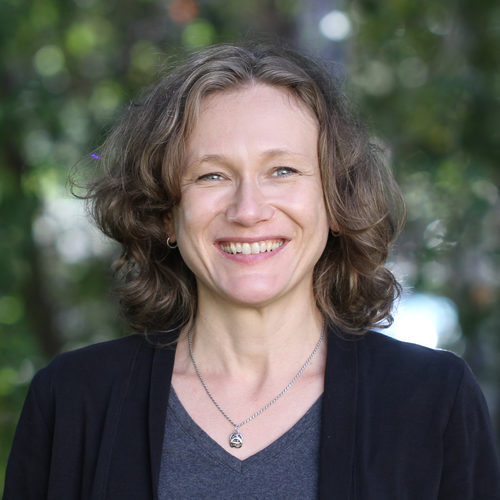
Carnegie’s Anna Michalak honored by Max Planck Society
Carnegie’s Anna Michalak has been named an External Scientific Member of the Max Planck Institute for Biogeochemistry and a Scientific Member of the Max Planck Society in recognition of her scientific excellence and leadership.
Over the course of her career, Michalak has developed novel approaches for quantifying greenhouse gas emissions and for characterizing how climate change impacts the biosphere’s ability to sequester carbon. She has also advanced our knowledge of how a warming planet and shifting precipitation patterns impact coastal, lake, and river water quality around the world. This work has positioned Michalak as a thought leader for policymakers, for example leading the development of the U.S. Carbon Cycle Science Plan and serving on multiple committees for the National Academies of Sciences, Engineering, and Medicine.
Learn more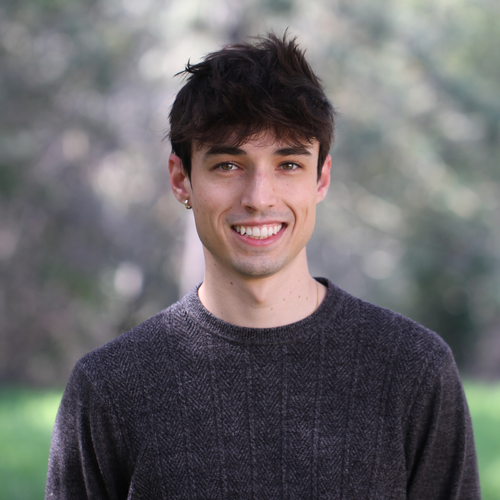
Carnegie’s William Dwyer selected as Knight-Hennessy Scholar at Stanford University
Carnegie’s William Dwyer was selected for the 2023 cohort of Knight-Hennessy Scholars—who are chosen for demonstrating “independence of thought, purposeful leadership, and a civic mindset.”
Dwyer joined former-Carnegie plant biologist Sue Rhee’s lab, where he has contributed to research aimed at uncovering the molecular strategies plants use to sense and respond to their surroundings and at improving the performance of algorithms for predicting the functions of genes.
Learn more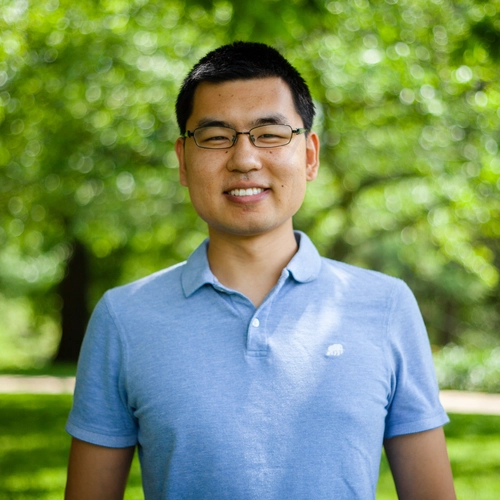
Peter Gao awarded Scialog grant for biosignature research
Peter Gao is one of 19 researchers from across the U.S. and Canada who were awarded a $50,000 Scialog grant. The initiative was launched by the Research Corporation for Science Advancement (RCSA), the Heising-Simons Foundation, the Kavli Foundation, and NASA to advance interdisciplinary research that will advance the search for life beyond Earth by deploying a basic science approach. The Scialog program, short for “science + dialog” was created in 2010 by RCSA to support new research directions by stimulating intensive interdisciplinary conversations and community building around a globally important scientific theme.
Together with Renyu Hu of the Jet Propulsion Laboratory and Chenguang Sun of the University of Texas at Austin, Gao will use a combination of modeling and observations to better understand how geologic processes happening in the interiors of exoplanets could be detected and understood from studying their atmospheres.
Learn more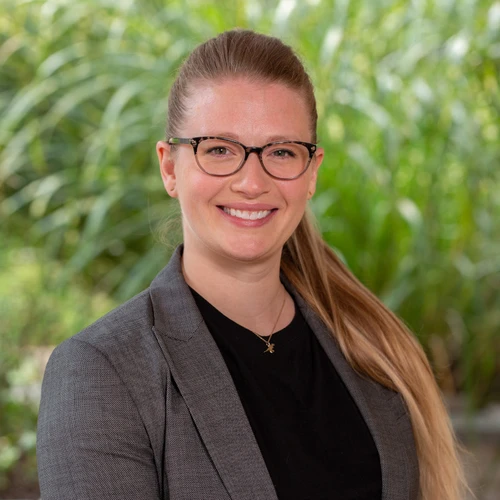
Shaunna Morrison recognized by AGU for early career excellence
Recently departed Carnegie mineralogist Shaunna Morrison was awarded the American Geophysical Union’s Ronald Greeley Early Career Award in Planetary Sciences, which recognizes significant contributions from researchers within six years of receiving their Ph.D. Presented annually, the Greeley Award is named in honor of a prolific planetary geologist who trained and mentored many early career researchers during his lifetime.
Morrison combines her expertise in crystallography and crystal chemistry with cutting-edge machine learning and data visualization methods to advance the field of mineralogy. As a coinvestigator on NASA’s Curiosity Mars Rover mission, Morrison predicted the location of previously unknown mineral deposits and Mars analog environments on Earth, and uncovered mineralogical signs of life.
Learn more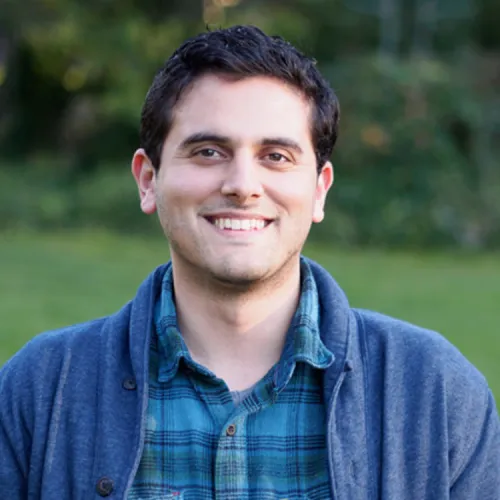
Carnegie’s Ryan Hulett recognized by HHMI for early career excellence
Postdoc Ryan Hulett was selected by the Howard Hughes Medical Institute for the 2023 cohort of Hanna Gray Fellows, a group of 25 outstanding early career researchers in the biomedical sciences. The Hanna Gray program was designed to give fellows “the freedom to explore new scientific territory and follow their curiosity, while seeking answers to challenging scientific questions.”
Working in Phillip Cleves’ lab at Carnegie, Hulett’s research focuses on how climate change is impacting interactions between animals and microbes. He uses symbiotic marine invertebrates, like anemones and corals, which take up algae into their own cells, to understand how intracellular microbes reprogram their host cell’s responses to heat stress conditions. This work will illuminate fundamental cellular and molecular mechanisms underlying animal resilience in response to global warming.
Learn more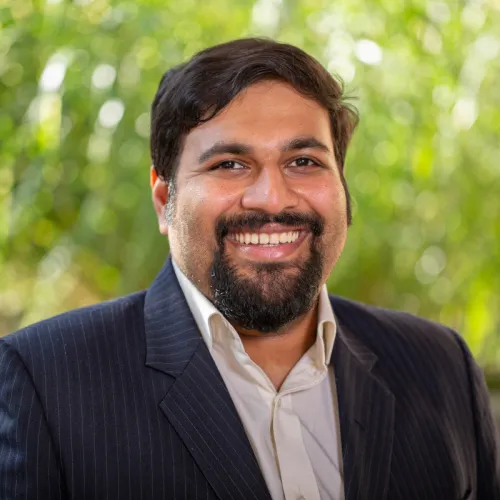
Carnegie’s Anirudh Prabhu recognized for early career excellence
Carnegie Research Scientist Anirudh Prabhu was recognized for early career excellence in Earth and space science informatics by the European Geosciences Union. Prabhu’s research focuses on advancing data science by developing and applying analytics and machine learning techniques to answering some of the biggest questions in science.
Learn more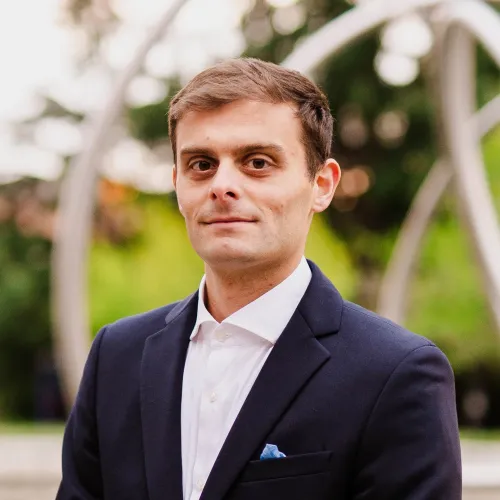
Carnegie’s Lorenzo Rosa recognized for early career excellence
Carnegie Staff Associate Lorenzo Rosa was recognized by the Leonardo da Vinci Society for his contributions to science and society in the field of engineering. The Leonardo da Vinci Award was created in 2019 to honor Italian and Italian American early career researchers in the San Francisco Bay Area.
His work aims to analyze environmental challenges and solutions in our food, water, and energy systems.
Learn more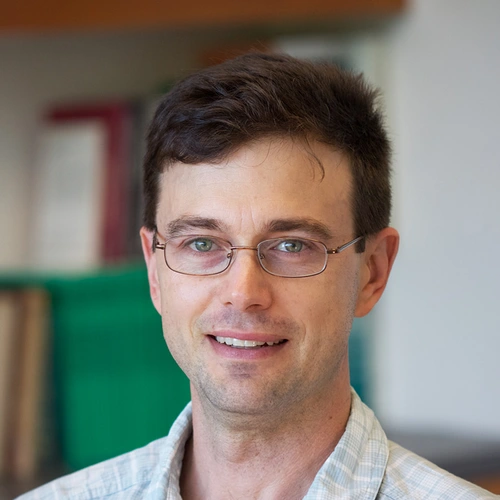
William Ludington wins second Scialog grant to study brain-microbe interactions
Carnegie’s William Ludington is co-leading one of eight research teams from across the U.S. and Canada who were awarded a $50 thousand Scialog grant. The initiative, which is sponsored by the Research Corporation for Science Advancement, The Paul G. Allen Frontiers Group, and the Frederick Gardner Cottrell Foundation, with support from the Walder Foundation, was designed to stimulate interdisciplinary research that will advance the our knowledge of the connections between the microbiome and neurobiology.
Together with Karthik Shekhar of UC Berkeley, Ludington will investigate how signals from the gut can activate glial cells, which support healthy neuron function, into an inflammatory and neurotoxic state. In order to better understand this phenomenon, they will probe the gut-brain axis using a variety of molecular and computational tools.
Learn moreNew Staff
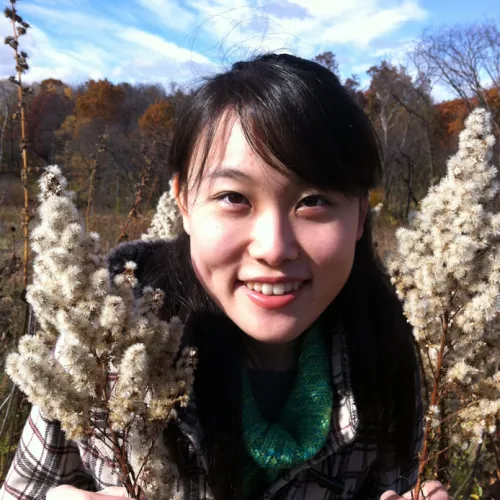
Mengyi Cao joined Carnegie Sciences as a Biosphere Sciences and Engineering Staff Associate based in Pasadena in the spring of 2023. Cao’s research focuses on establishing Steinernema nematodes as an emerging genetic model to study microbial symbiosis. These soil-dwelling roundworms naturally associate with mutualistic bacteria in the genus Xenorhabdus. Further development of genetic tools in Steinernema nematodes will help biologists better understand the molecular mechanisms underlying host-microbe interactions.
New Role
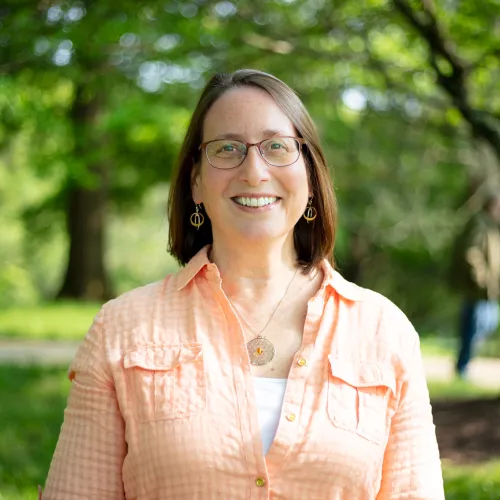
Alycia Weinberger has been appointed as Associate Division Director by EPL. Weinberger works closely with EPL Director Michael Walter to set and execute the Division’s overall scientific and cultural vision. She also manages the postdoctoral fellowship program and oversees the Division’s colloquia and internship programs, serving as a mentor to the next generation of researchers and helping to maintain a long-standing legacy of scientific excellence.
In Memorium
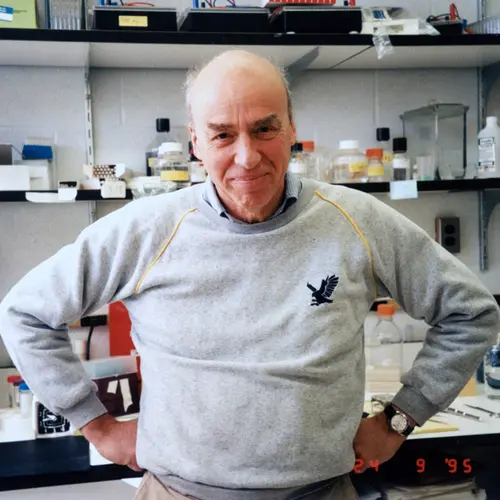
Donald Brown
Carnegie Science developmental biologist Donald Brown died in May 2023 at the age of 91. His pioneering molecular biology research advanced our understanding of the fundamental nature of genes and led to early breakthroughs in genetic engineering. Brown served as the director of Carnegie’s former Department of Embryology from 1976 through 1994. He is widely recognized for his role in spearheading and championing the ability to manipulate genes in a laboratory environment. His work played a leading role in transforming biology from a primarily observational pursuit, in which researchers relied on microscopic observations of processes, to a mechanistic discipline in which investigators used novel techniques to study the interlocking functions of genes and cellular components.
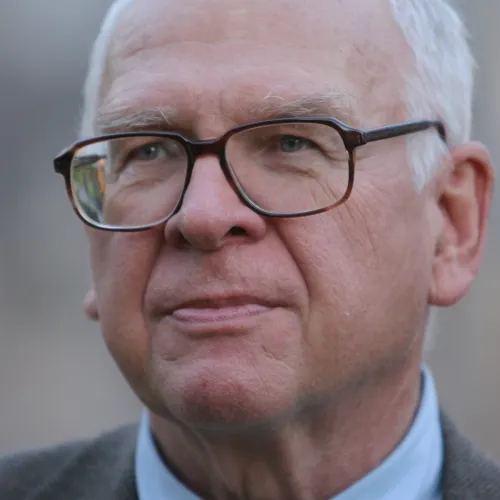
Kent Ford
Carnegie Science astronomer and instrument developer Kent Ford died in April of 2023 at the age of 92. A ham radio hobbyist growing up, his tinkering with electronics and tubes led to a career as an instrumentation specialist. He developed the Carnegie Image Tube spectrograph that enabled him and legendary Carnegie Science astronomer Vera Rubin to confirm the existence of dark matter by studying the rotation curves of galaxies. This incredible tool is on display at the Smithsonian’s Air and Space Museum, where it is identified as one of “The 101 Items That Made America.”
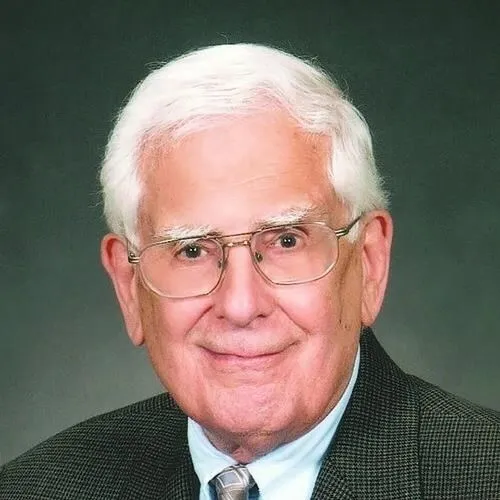
Paul Kokulis
Paul Kokulis was a prominent Washington, D.C.-area patent attorney with a background in chemical engineering. Over the course of an impressive career, he represented many clients in the chemical, pharmaceutical, and textile industries, and worked on products ranging from pantyhose to home pregnancy tests, and flu medication to permanent press fabric. A longtime friend of Carnegie Science, Paul Kokulis represented the institution’s IP interests for many years, including patents and licensing for critical Carnegie-led breakthroughs like RNAi and the chemical vapor deposition process associated with the fabrication of diamonds. He was also a regular attendee of the popular Capital Science Evenings public lecture series and an enthusiastic advocate for Carnegie among his social circles.
Division Leadership, Staff Scientists, & Staff Associates
Biosphere Sciences & Engineering
Staff Scientist
Staff Scientist
Staff Associate
Senior Staff Scientist
Staff Scientist
Staff Scientist
Deputy Director, Biosphere Sciences & Engineering
Senior Staff Scientist
Director, Biosphere Sciences & Engineering (to February 2023)
Senior Staff Scientists (from March 2023)
Senior Staff Scientist
Staff Scientist
Staff Associate
Senior Staff Scientist
Staff Associate
Staff Scientist
Senior Staff Scientist
Staff Associate
Senior Staff Scientist
Staff Associate
Staff Scientist
Director, Department of Global Ecology, Biosphere Sciences & Engineering (to April 2023)
Senior Staff Scientist (from April 2023)
Staff Associate
Acting Director, Department of Plant Biology, Biosphere Sciences & Engineering (to April 2023)
Senior Staff Scientist (from April 2023)
Director, Department of Embryology, Biosphere Sciences & Engineering (to April 2023)
Senior Staff Scientist (from April 2023)
Earth & Planets Laboratory
Staff Scientist
Staff Scientist
Staff Scientist
Staff Scientist
Staff Scientist
Staff Scientist
Staff Scientist
Staff Scientist & Deputy for Research Advancement
Staff Scientist
Staff Scientist
Staff Scientist
H.O. Wood Chair of Seismology
Staff Scientist (to April 2023)
Associate Division Director, Earth & Planets Laboratory (from May 2023)
Staff Scientist
Staff Scientist
Staff Scientist
Staff Scientist
Staff Scientist
Staff Scientist
H.O. Wood Chair of Seismology
Staff Scientist
Staff Scientist
Staff Scientist
Staff Scientist
Director, Earth & Planets Laboratory
Observatories
Staff Scientist
Associate Director for Strategic Initiatives, Las Campanas Observatory
Associate Director for Technological Affairs
Staff Associate
Staff Scientist
Resident Astronomer, Las Campanas Observatory
Staff Scientist
Staff Scientist
Staff Scientist & Director of the Carnegie Astrophysics Summer Student Internship (CASSI)
Staff Scientist
Staff Scientist & Giant Magellan Telescope Chief Scientist
Staff Scientist
Director, Las Campanas Observatory
Staff Scientist & Founding Director of the Carnegie Theoretical Astrophysics Center
Staff Scientist
Division Director & Carnegie Science Deputy for Science
Associate Director, Las Campanas Observatory
Staff Scientist
Staff Scientist
Staff Scientist
Keep Reading
Carnegie Science’s legacy is one of bold questions and transformative discoveries. Together, we continue to explore the unknown and unlock the secrets that shape our world—and beyond.
Carnegie Science’s bold, boundless, and wondrous approach to discovery.
Your investment in Carnegie Science fuels bold exploration.
We're tackling the challenges of climate change and sustainability through cross-disciplinary collaboration.
The numbers behind Carnegie Science’s outsized impact.
